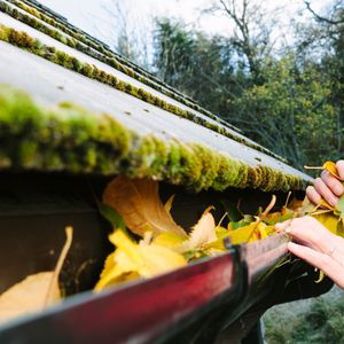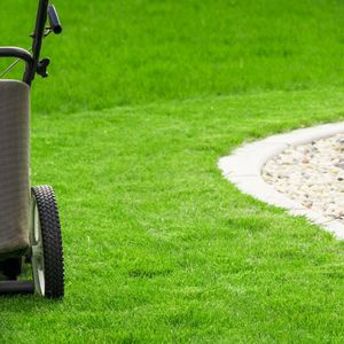
Reading Time: 4 Minutes
Responsibility for Maintenance and Repairs in a Rental Property?
While landlords and tenants both share the responsibility for keeping a rental property in a good condition, landlords must provide and maintain rental properties in a reasonable state of repair. Here’s who is responsible for what.
Legal Requirements
Landlords must follow all relevant legislation, including building and health and safety requirements. The Residential Tenancies Act 1986 requires landlords to provide and maintain rental properties in a reasonable state of repair. The definition of ‘reasonable’ depends on the age and character of the property. Landlords must also keep the plumbing, electrical wiring and structure of the rental property safe. Safety hardware such as locks and fastenings must also be in working order.
General Maintenance and Inspections
It is the responsibility of the landlord to carry out regular inspections to assess the condition of their rental properties. During the inspection landlords can assess any damage to the property and ensure the tenant is keeping the property in a clean and tidy condition. These inspections are also an opportunity for landlords to assess whether any repairs are required. Any repairs must be attended to in a prompt manner. Having a reliable property manager such as Crockers to carry out these inspections and engage reliable contractors can be a huge advantage.
Tenants also have a responsibility to notify their landlord as soon as any repairs are needed. A landlord can’t give notice to end a tenancy because the tenant has asked for repair or maintenance work to be done.
Urgent Jobs
Urgent problems that require immediate attention include blocked drains and sewage problems, gas leaks, water leaks, a lack of hot water or power, and electrical faults. These issues may affect a tenant’s health and safety and should be attended to immediately. In urgent cases, a tenant can have repair work done and ask the landlord to pay them back for it.
Repairs and Damage
If something gets damaged in a rental property it is important to know who is responsible for repairing and paying for the problem.
If a tenant (or guest) intentionally damages the landlord’s property, the landlord can ask the tenant to repair the damage, or to pay the cost of replacement or repair. If the damage is not repaired or the tenant refuses to pay for the work, the landlord can make an application to the Tenancy Tribunal for a repair order.
If a tenant carelessly damages a rental property, they are liable for the cost of the damage up to four weeks’ rent or the landlord’s insurance excess (if applicable), whichever is lower.
Healthy Homes Guarantee Act
The Healthy Homes Guarantee Act is a policy that was brought in to increase the quality of rental homes which landlords must adhere to. The primary aim of the Act is to make homes warmer and drier for New Zealand renters and to reduce the number of hospitalisations due to poor housing. The Healthy Homes Standards set the minimum requirements for heating, insulation, ventilation, moisture ingress and drainage and draught-stopping. If maintenance or repairs are required to get a rental property up to the required standard, this is will be the responsibility of the landlord.
All private residential properties must comply with the full list of regulations for the Healthy Home Standards within 90 days of any new, or renewed, tenancy from 1st July 2021. By July 2024 all rental homes must comply with the Standards, regardless of when the tenancy began. Detailed information is available from the Tenancy Services website.
Having a Healthy Homes compliant property is a huge advantage for landlords when it comes to renting and selling their investment properties.
Asbestos-Related Risks
Landlords are responsible for managing asbestos-related risks when work is being done at their property. This is to protect the health and safety of tenants, neighbours, contractors and anyone else who may be affected.
Garden Maintenance
Clarifying who is responsible for the maintenance of rental property gardens should be set out at the beginning of a tenancy. Identifying who will take responsibility for which tasks helps avoid any disputes later on.
Under the Residential Tenancies Act, tenants are responsible for keeping the property reasonably tidy and clean until the end of their tenancy and this includes the garden. However, tenants are only expected to mow the lawn and weed the garden unless other duties have been specified in the tenancy agreement.
What About Changing Light Bulbs?
This might not seem a big deal, but sometimes the little things matter! The Residential Tenancies Act does not cover who is responsible for supplying or replacing light bulbs, but if a property requires non-standard light bulbs which are more expensive or harder to fit, the landlord may agree to pay for or change these. If this or any other small jobs are important to a tenant, they should be negotiated at the start of a tenancy before any agreement has been signed.
Communication is key to maintaining a good relationship with your tenants. To ensure you are meeting your obligations under the Residential Tenancies Act and that your property is up to the required standards at all times, it is worth considering engaging a professional property manager.
For further advice on maintenance and repairs in rental properties, or to speak with one of our experienced property managers, contact the Crockers team today.







